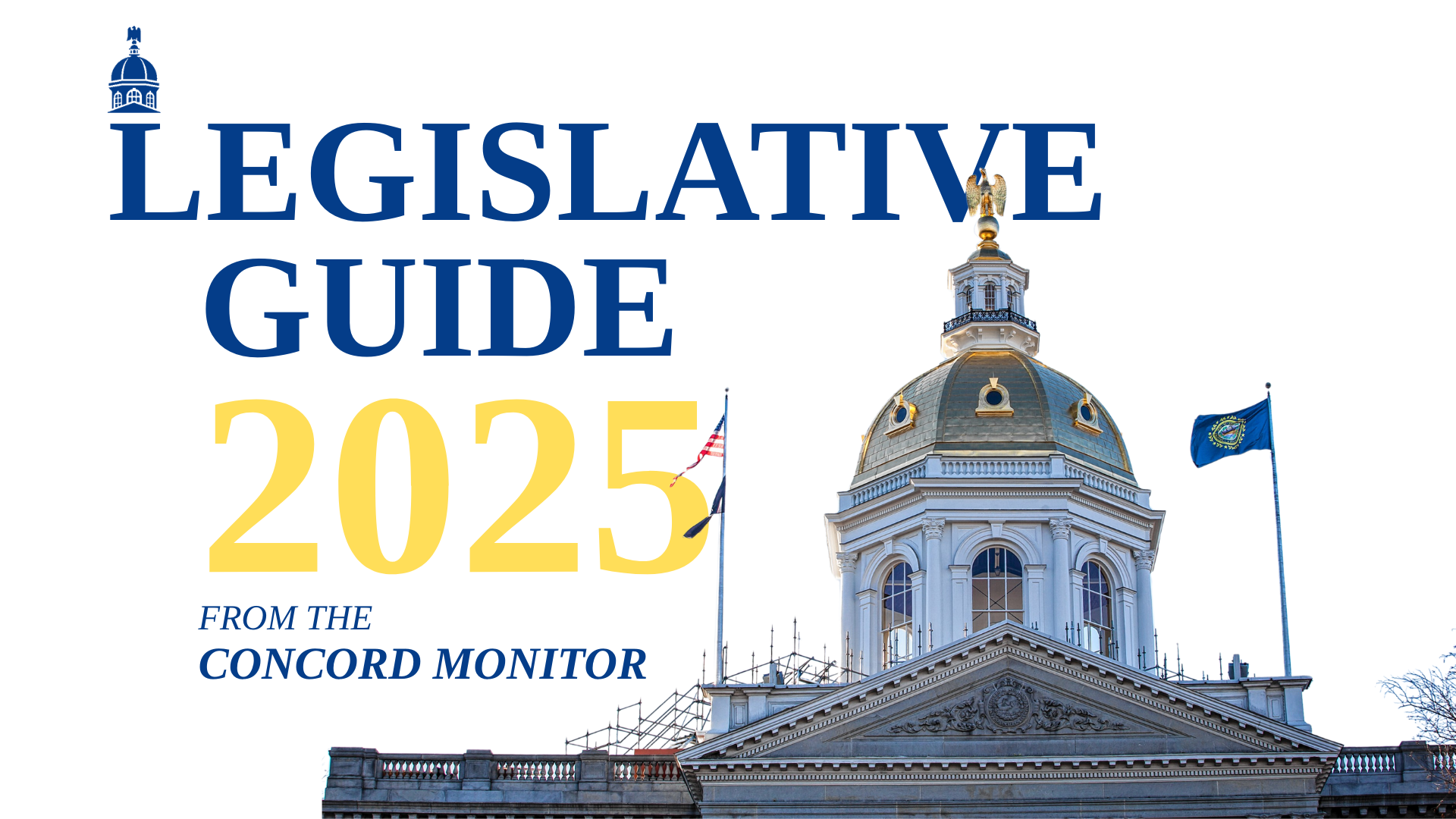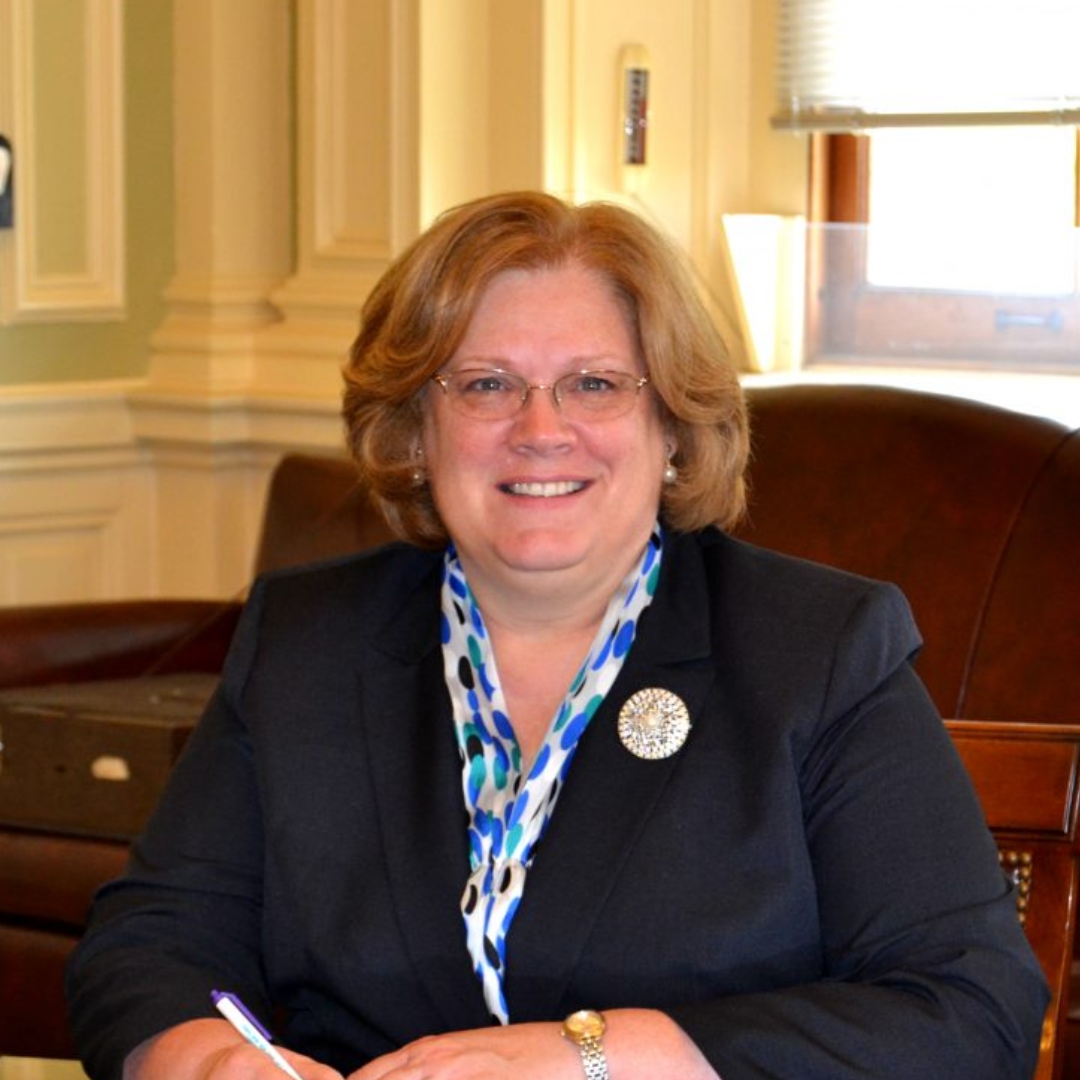
IN THIS GUIDE
As crossover day approaches, we hope this legislative guide will serve as a useful resource for navigating the inner workings of the New Hampshire legislature, its major players and the vast number of bills presented during this legislative session. The Monitor's coverage, led by State House reporter Charlotte Matherly, is ongoing, and we will continue to update this page to reflect the most current information possible.
SUBSCRIBE TO THE CAPITAL BEAT NEWSLETTER
for insights from State House reporter Charlotte Matherly and a look ahead at what’s happening in the State House each week.
COUNTDOWN TO CROSSOVER DAY
FREQUENTLY ASKED QUESTIONS
How does a bill become a law?
When a legislator files a bill, the leader of their chamber — either the Senate president or the speaker of the House of Representatives — decides which committee it’ll go to. In New Hampshire, every bill gets a public hearing, giving members of the public a chance to voice their opinions to the legislative committee. After the public hearing, committee members make a recommendation on the bill. They can either support it, saying it “ought to pass,” or oppose it by voting to deem it “inexpedient to legislate” or to recommend it for further study. Sometimes, committees will also vote to add their own amendments to the bill.
The bill is then put forward for a vote in whichever chamber it originated from. All legislators in that chamber cast a vote, and the bill goes no further if the chamber votes to defeat it or to recommend it for further study. Any bill that passes in its original chamber will then “cross over” to the other chamber, and the process will repeat itself. The bill then gets another public hearing, another committee recommendation and another vote in the full chamber. Bills that pass both the House and Senate head to the governor, who can sign it into law or veto it. The legislature can override a governor’s veto with a two-thirds vote in each chamber.
How does the budget process work?
New Hampshire’s budget works on a two-year cycle, called a biennium. We’re currently in the tail end of the 2024-25 biennium, and the new one, 2026-27, will start with the fiscal year on July 1. This means that every two years, lawmakers re-evaluate state spending.
This process usually begins with more than 50 state agencies presenting their budget proposals to the governor and the few key legislators and state officials who oversee the budget. They lay out the funding they need to meet all legal requirements, plus extra priorities. The governor then creates a first draft of the budget, and they are required to present that draft to the legislature by mid-February.
Then, it’s up to the Legislature. Lawmakers will spend the next few months reviewing the governor’s budget, editing it how they see fit. The budget is broken up into two parts: House Bill 1 includes all the appropriations and line items. House Bill 2, also called the “trailer bill,” includes any policy changes that come with the budget. As with any bill, the House of Representatives and Senate must both approve the final draft of the budget and send it to the governor’s desk to be signed into law. This must be completed by the last day of the biennium, which is June 30.
How can I track a bill and stay updated on the legislature?
For starters, you can subscribe to the Monitor’s Capital Beat newsletter, which includes insights from State House reporter Charlotte Matherly and a look ahead at what’s happening in the State House each week.
Multiple websites track bills making their way through the New Hampshire legislature. For the most updated information on each bill, visit the General Court’s website. On the left-hand side, under “Current Bills,” you can look up any bill proposed in the current legislative session. You can search by bill number or you can search by topic or keyword. You can also select any legislator’s name from a dropdown menu to see which legislation they’re sponsoring this year.
The General Court website is continuously updated with any changes made to the text of a bill and any reports on a bill’s public hearing and committee decisions. To receive automatic updates on a specific bill, topic or committee, you can subscribe to the General Court’s website for email notifications. You will need to create an online account.
WATCH: State House reporter Charlotte Matherly answers your #AMA questions:
WHO'S WHO IN THE
NEW HAMPSHIRE LEGISLATURE
KEY PLAYERS:
KELLY AYOTTE
Governor

SHERMAN PACKARD
Speaker of the House

SHARON CARSON
Senate president

TO FIND WHO REPRESENTS YOU IN THE STATE HOUSE...
Head to the General Court’s website. Under the 'quick links' section in the center of the page, you can click on “Contact a Representative” or “Contact a Senator.” These will take you to another webpage, where you can select your town or city from a dropdown menu, which will show you which districts your town falls into and who represents them. You can also click on any lawmaker’s name to learn more about them, including how to contact them, which committees they serve on, their voting record, which bills they’ve sponsored and other information.
THIS SESSION'S KEY ISSUES
EDUCATION FUNDING
New Hampshire’s funding structure for public education is under review as multiple lawsuits allege the state doesn’t adequately fund local school districts. Public schools are largely supported by local property taxes. Democrats argue this results in an inequitable education system based on a locality’s property values and have proposed several bills to raise the state’s share of education costs. Republicans, on the other hand, aim to pass a tax cap on localities to keep education costs from rising.
Republicans are also on the verge of passing a universal expansion of the state’s school voucher program — Education Freedom Accounts — which give eligible families enrolled in non-public schools a state-funded stipend to subsidize alternative forms of education. Democrats have fought against this, saying state and taxpayer money shouldn’t go to private and religious schools.
RELEVANT BILLS
HB 115 and SB 295 — the leading proposals from the House and Senate on removing the income requirement for the Education Freedom Accounts program; HB 675 — a Republican-supported local tax cap, tied to inflation, meant to curb rising education costs.
READ THE MONITOR'S COVERAGE:
By Charlotte Matherly
TRANSGENDER RIGHTS
Almost no other issue has drawn crowds to the State House quite like transgender-related bills. Republicans have passed bills to allow the separation of certain spaces, like bathrooms, by biological sex. Other bills would ban puberty blockers, hormone therapy and gender-reassignment surgeries for transgender minors. Republicans say they’re advocating for women’s right to privacy and safety in spaces like bathrooms and locker rooms as well as protecting children from what they view as dangerous medical procedures. Democrats, for the most part, disagree and say these bills are discriminatory against transgender people.
RELEVANT BILLS
HB 148 and SB 268 — allows the segregation of bathrooms, locker rooms, sports and prisons by biological sex rather than gender identity; HB 377 — makes it a felony to provide puberty blockers or hormone treatment to minors for the purpose of gender transition; HB 712 — prohibits elective breast surgery for minors, including for the purpose of gender transition
READ THE MONITOR'S COVERAGE:
STATE BUDGET
As lawmakers hammer out state spending for the next two years, they’re considering cutting small state agencies like the Housing Appeals Board, the Council on the Arts and more. The proposed budget from the House of Representatives would also cut hundreds of state jobs.
RELEVANT BILLS
HB 1 — the line-item budget, which records exactly how much state leaders plan to spend on each office, service and function of the government; HB 2 — also called the “trailer bill,” which includes all the policy changes that come along with the state’s spending plan.
READ THE MONITOR'S COVERAGE:
By Charlotte Matherly